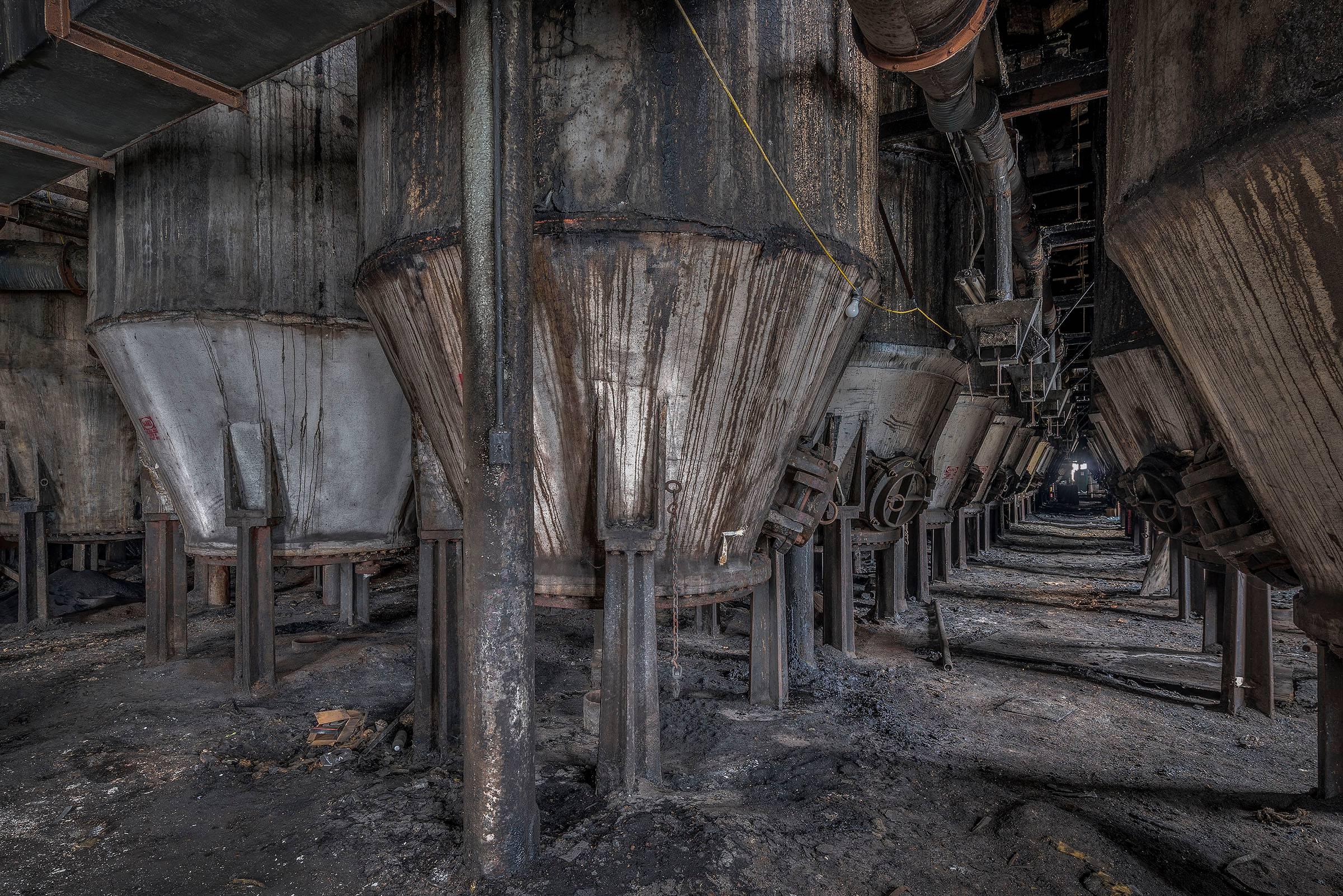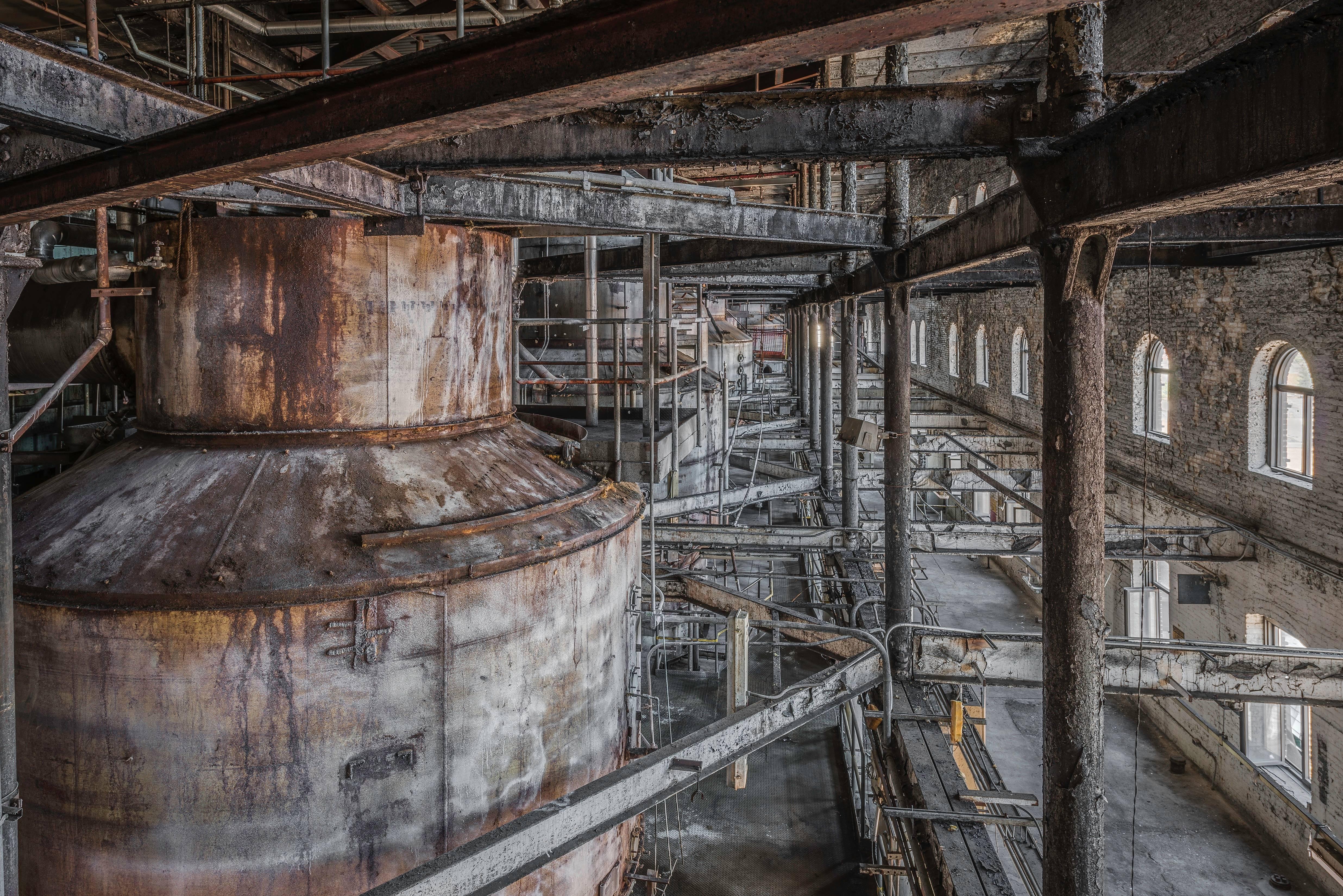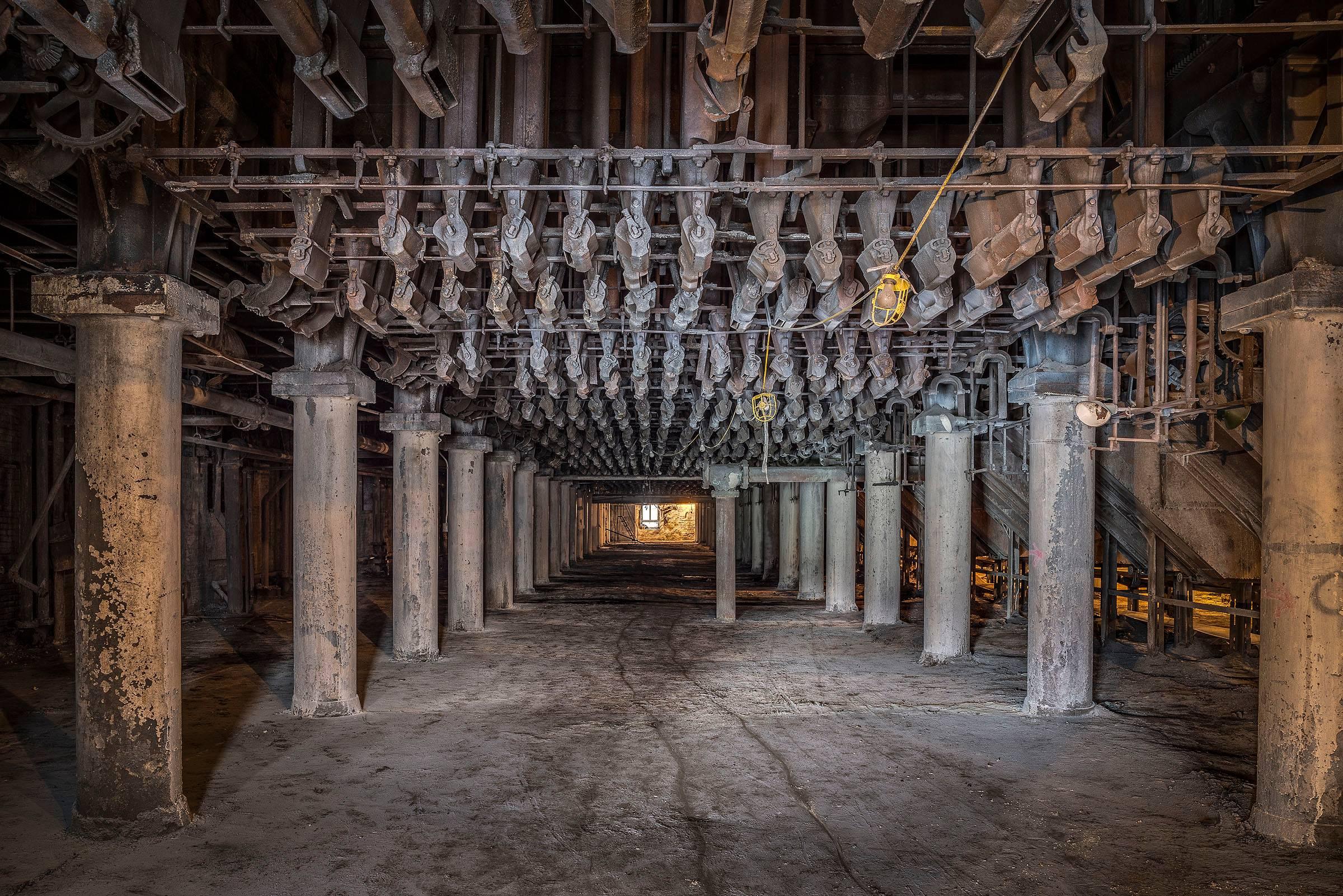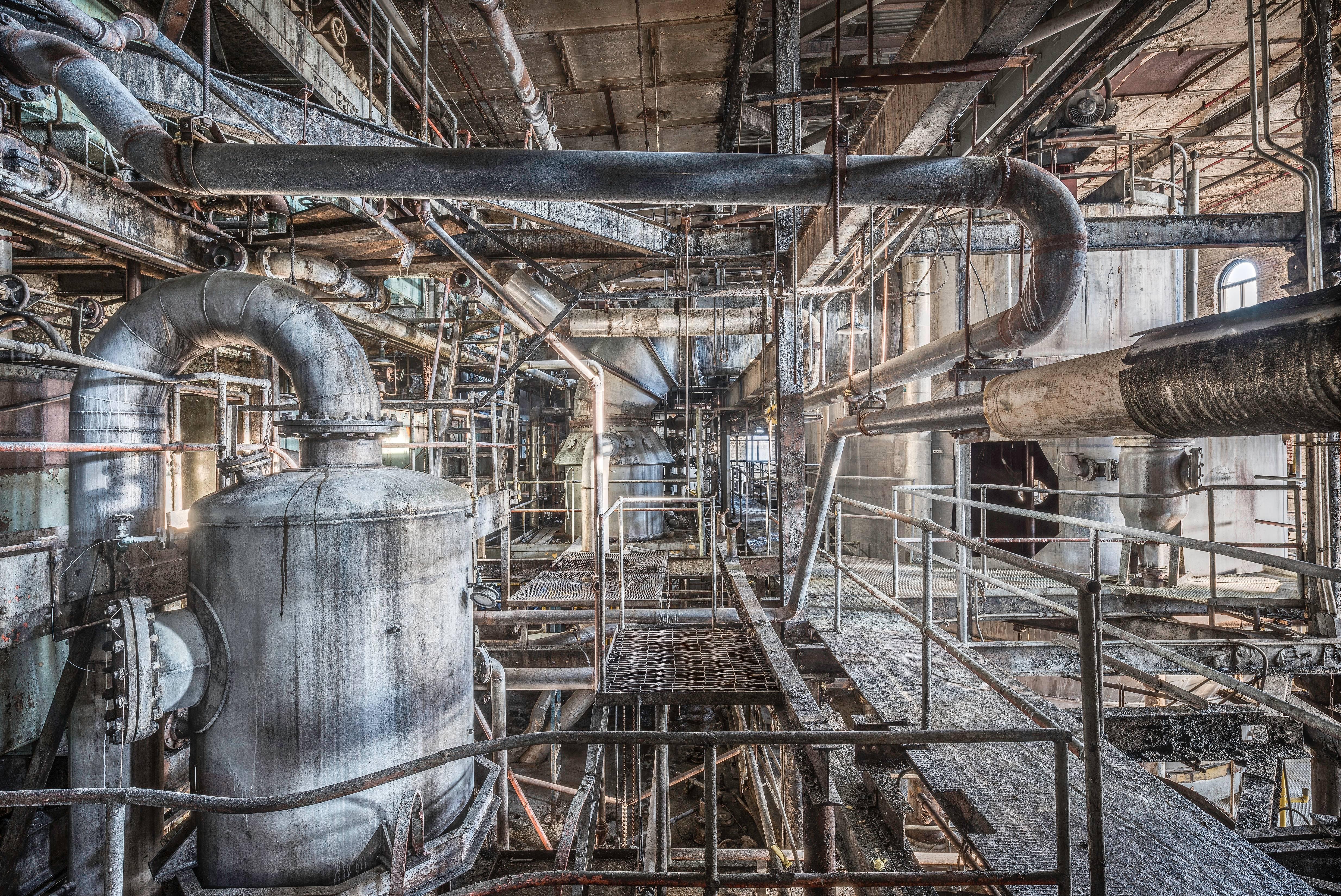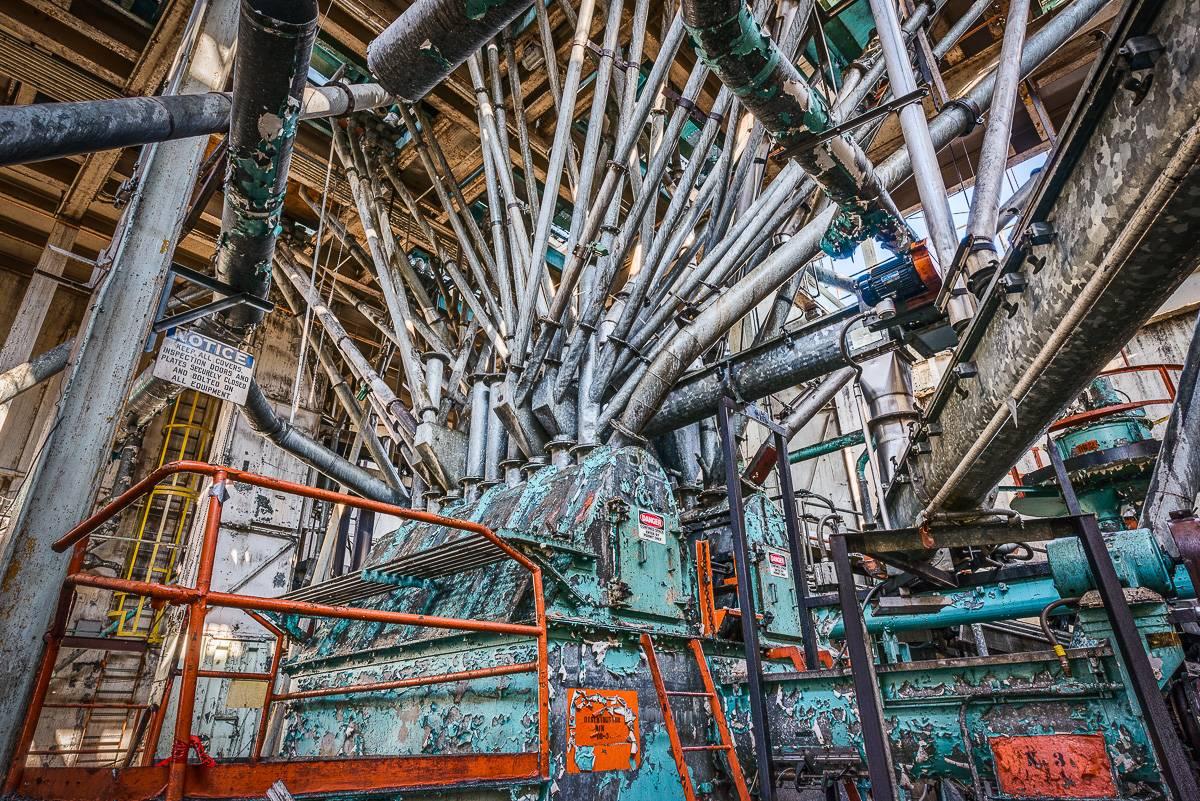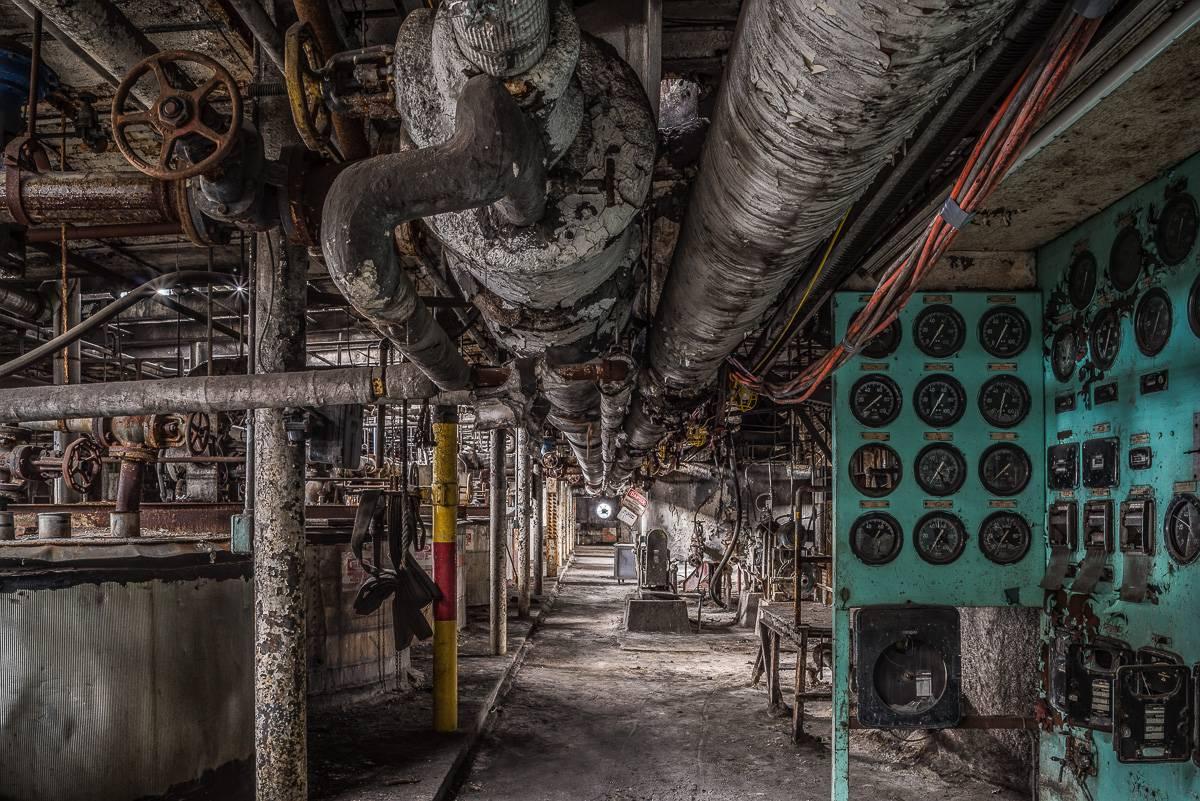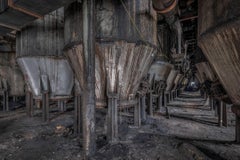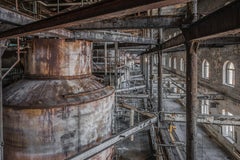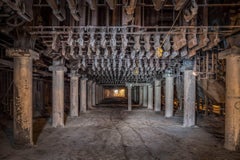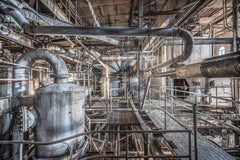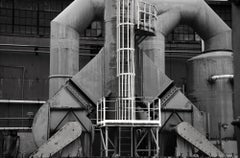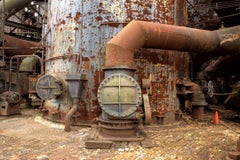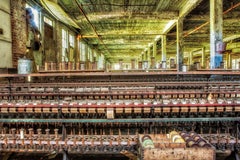Items Similar to Char Filters
Want more images or videos?
Request additional images or videos from the seller
1 of 4
Paul RaphaelsonChar Filters
$4,200
£3,265.93
€3,713.40
CA$6,051
A$6,615.99
CHF 3,458.91
MX$79,589.18
NOK 43,769.03
SEK 41,051.49
DKK 27,727.61
About the Item
40"x60" signed on reverse.
This photograph was taken at the site of Brooklyn's Domino Sugar Refinery, Paul Raphaelson's photographs chronicle the final state of the once bustling industrial complex before its dismantling and demolition.
In 2013, Paul Raphaelson received permission from the developers of the Domino site to explore every square foot of the refinery just weeks before its gutting and demolition. Raphaelson is the last photographer given access to the factory. At its peak Domino was the biggest industry in Brooklyn and was responsible for 90 percent of the sugar production in the US. Domino sugar factory was its own ecosystem. For more than a hundred years workers toiled, ate bathed and drank beer (from a bar in the basement) at the enormous compound.
By the 1980s Domino had lost its monopolistic grip on the market, and struggled against decades of increasing competition from similar cane refineries, the beet sugar industry, from both non-sugar sweeteners and from corn syrup. The Department of Labor reports that over the same period, manufacturing jobs in Brooklyn fell over 60%. The Domino refinery, which had once employed 4,500 laborers working around the clock, in 1919, was down to a skeleton crew of 220 workers by the time it closed in 2004.
- Creator:Paul Raphaelson (American)
- Dimensions:Height: 40 in (101.6 cm)Width: 60 in (152.4 cm)
- Medium:
- Movement & Style:
- Period:
- Condition:
- Gallery Location:New York, NY
- Reference Number:1stDibs: LU6922281791
About the Seller
5.0
Vetted Professional Seller
Every seller passes strict standards for authenticity and reliability
Established in 1999
1stDibs seller since 2014
82 sales on 1stDibs
Typical response time: 1 hour
- ShippingRetrieving quote...Shipping from: New York, NY
- Return Policy
Authenticity Guarantee
In the unlikely event there’s an issue with an item’s authenticity, contact us within 1 year for a full refund. DetailsMoney-Back Guarantee
If your item is not as described, is damaged in transit, or does not arrive, contact us within 7 days for a full refund. Details24-Hour Cancellation
You have a 24-hour grace period in which to reconsider your purchase, with no questions asked.Vetted Professional Sellers
Our world-class sellers must adhere to strict standards for service and quality, maintaining the integrity of our listings.Price-Match Guarantee
If you find that a seller listed the same item for a lower price elsewhere, we’ll match it.Trusted Global Delivery
Our best-in-class carrier network provides specialized shipping options worldwide, including custom delivery.More From This Seller
View AllChar Filters (27"x40") Domino Sugar Factory, Williamsburg, Brooklyn -limited ed.
By Paul Raphaelson
Located in New York, NY
27"x40" limited edition of 10 signed on reverse.
This photograph was taken at the site of Brooklyn's Domino Sugar Refinery, Paul Raphaelson's photographs chronicle the final state ...
Category
2010s Contemporary Figurative Photography
Materials
Photographic Paper
Vacuum Pan
By Paul Raphaelson
Located in New York, NY
27 × 40 in
available unframed
Paul Raphaelson’s photographs of the Domino Sugar Factory in Williamsburg, Brooklyn document a topic of continuing controversy. It was once the biggest...
Category
21st Century and Contemporary Contemporary Color Photography
Materials
Archival Pigment
1st Floor Filter House
By Paul Raphaelson
Located in New York, NY
17"x25" signed on reverse, available unframed,
This photograph was taken at the site of Brooklyn's Domino Sugar Refinery, Paul Raphaelson's photographs chronicle the final state of ...
Category
2010s Contemporary Figurative Photography
Catwalks, Vacuum Pan (Domino Sugar Factory - Williamsburg, Brooklyn)
By Paul Raphaelson
Located in New York, NY
27"x40" unframed signed on reverse
Paul Raphaelson’s photographs of the Domino Sugar Factory in Williamsburg, Brooklyn document a topic of contin...
Category
21st Century and Contemporary Contemporary Color Photography
Materials
Archival Pigment
Bin Distributor
By Paul Raphaelson
Located in New York, NY
27 3/8"x40" (edition of 10)
available unframed
Paul Raphaelson's photographs of the Domino Sugar Factory in Williamsburg, Brooklyn document a topic of continuing contro...
Category
21st Century and Contemporary Contemporary Color Photography
Materials
Archival Pigment
Pipes and Gauges
By Paul Raphaelson
Located in New York, NY
27"x40" (edition of 10) unframed, signed on reverse
This photograph was taken at the site of Brooklyn's Domino Sugar Refinery, just before its dismantling and demolition. It was onc...
Category
21st Century and Contemporary Contemporary Color Photography
Materials
Archival Pigment
You May Also Like
Past Furnace, Photograph, Archival Ink Jet
By John Flatz
Located in Yardley, PA
"Misdirection" is a perfect example of Hunter's highly fluid, expressionistic style -- which so often results in arresting images with a sense of depth and sculptural form. Black and...
Category
2010s Abstract Black and White Photography
Materials
Acrylic
Vault Interior II
By Christian Voigt
Located in Chicago, IL
Vault Interior II
Chicago, 2015
119 x 250 cm
Edition size: 12
Light jet, exposure on high glossy paper and aluminum dibond
Framed with tulipwood, distance framing, and a UV 99 museum glass.
Christian Voigt...
Category
21st Century and Contemporary Contemporary Color Photography
Materials
Archival Pigment
Price Upon Request
"Industrial Interior", Contemporary, Steel Factory, Machinery, Color Photograph
By Rebecca Skinner
Located in Franklin, MA
Rebecca Skinner’s “Industrial Interior” was photographed at an abandoned steel factory and is part of a series documenting the loss of industry in America. Rust-covered industrial ma...
Category
2010s Contemporary Color Photography
Materials
Metal
"Silk Mill", Contemporary, Industrial, Machines, Metal Print, Color Photograph
By Rebecca Skinner
Located in Franklin, MA
Rebecca Skinner’s “Silk Mill” was photographed at an abandoned mill and is part of a series documenting the loss of industry in America. The 16 x 24 inch color photograph with satin ...
Category
2010s Contemporary Color Photography
Materials
Metal
"Silk Mill", Abandoned Factory, Machinery, Industrial, Color Photograph, Print
By Rebecca Skinner
Located in Franklin, MA
Rebecca Skinner’s “Silk Mill” was photographed at an abandoned mill and is part of a series documenting the loss of industry in America. The 20 x 30 inch acid-free, archival, color p...
Category
2010s Contemporary Photography
Materials
Color, Archival Pigment, Giclée
"Daydream", Contemporary, Abandoned Factory, Industrial, Color Photograph
By Rebecca Skinner
Located in Franklin, MA
Rebecca Skinner’s “Daydream” was photographed at an abandoned lace factory and is part of a series documenting the loss of industry in America. The 16 x 24 inch color photo with sati...
Category
2010s Contemporary Color Photography
Materials
Metal
More Ways To Browse
Domino Sugar Factory
Used Basement Bars
Miro Plate
Framed Matisse
Noahs Ark
Paul Eluard
Pont Des Arts
Skeleton Prints
Stipple Engraving
Vintage Printing Plates
19th Century Orientalist Paintings
Alexander Calder Mobile
Flemish 18th Century Oil Painting
Gullivers Travels
Joan Miro Maeght
Maeght Miro
Pablo Picasso 1961
Robert Kline
